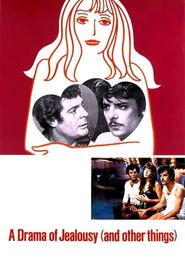Ettore Scola, a celebrated Italian screenwriter and film director, was born on May 10, 1931, in the picturesque town of Trevico, nestled in the region of Avellino, within the borders of Campania. This remarkable individual embarked on his writing journey at a remarkably early age of 15, functioning as a ghostwriter, laying the foundation for his future success. As his skills and experience grew, Scola transitioned into the film industry as a screenwriter in 1953, marking the beginning of an illustrious career that would span decades to come.
Ettore Scola's illustrious career as a director began with the release of Let's Talk About Women in 1964, marking the beginning of a trajectory that would soon propel him to international recognition. As his filmography continued to unfold, Scola's subsequent works garnered widespread acclaim, cementing his reputation as a master of his craft.
One of his most notable achievements came in 1974 with the release of We All Loved Each Other So Much, a sprawling epic that delved into the complexities of post-World War II Italian life and politics. This cinematic masterpiece would go on to claim the prestigious Golden Prize at the 9th Moscow International Film Festival, a testament to Scola's skill and artistry.
In 1976, Scola's exceptional direction earned him the Prix de la mise en scène at the esteemed Cannes Film Festival for his work on Brutti, sporchi e cattivi.
Notable Italian film director, Scola, left an indelible mark on the cinematic world with his remarkable body of work spanning nearly four decades. Throughout his illustrious career, he helmed a staggering total of close to forty films, many of which garnered widespread critical acclaim. His impressive repertoire boasts a diverse array of cinematic masterpieces, including the poignant and thought-provoking A Special Day, released in 1977, the historical drama That Night In Varennes, which premiered in 1982, the whimsical What Time Is It?, a 1989 release, and the visually stunning Captain Fracassa's Journey, which debuted in 1990. One of his most notable works, Passione d'amore, a cinematic adaptation of a 19th-century novel, would later serve as the basis for the award-winning musical Passion, a collaboration between the renowned Stephen Sondheim and James Lapine.
Scola's profound and lasting impact on the film industry was met with widespread recognition and accolades, with one of the most prestigious honors being the Golden Globe Award for Best Foreign Film in 1978, bestowed upon him for his exceptional work on "A Special Day". Additionally, his cinematic achievements garnered a total of five Academy Award nominations for Best Foreign Language Film, a testament to his dedication and skill as a filmmaker. Furthermore, Scola's influence extended beyond his own creative endeavors, as he was also invited to serve as a member of the esteemed jury at the 1988 Cannes Film Festival, a position that further solidified his reputation as a respected and accomplished figure in the world of cinema.
Ettore Scola, a renowned film director, screenwriter, and producer, departed this life on January 19, 2016, at the ripe age of 84, leaving behind a remarkable body of work that has stood the test of time and continues to captivate and delight film enthusiasts to this very day.
Born and raised in Italy, Scola's early life and experiences undoubtedly had a profound impact on his later career, shaping his unique perspective and artistic vision. Throughout his illustrious career, he has been recognized for his outstanding contributions to the world of cinema, earning numerous accolades and awards for his innovative storytelling, masterful direction, and dedication to his craft.
Scola's impressive filmography is a testament to his remarkable talent and versatility as a filmmaker. From his early work in the 1960s to his later projects in the 2000s, he consistently pushed the boundaries of the medium, exploring a wide range of genres, themes, and styles. His films often featured complex characters, witty dialogue, and poignant commentary on the human condition, resonating with audiences worldwide.
Despite his passing, Scola's legacy continues to live on through his films, which remain a cherished part of the cinematic canon. His work serves as a reminder of the power of storytelling, the importance of artistic expression, and the enduring impact that a single film can have on our lives. As we remember Ettore Scola, we honor his memory by continuing to celebrate his remarkable achievements and the timeless appeal of his films.



































